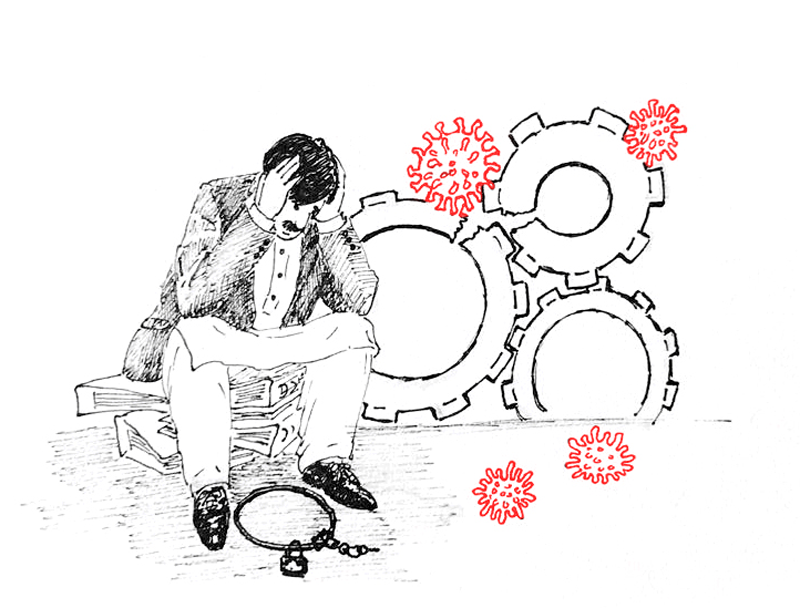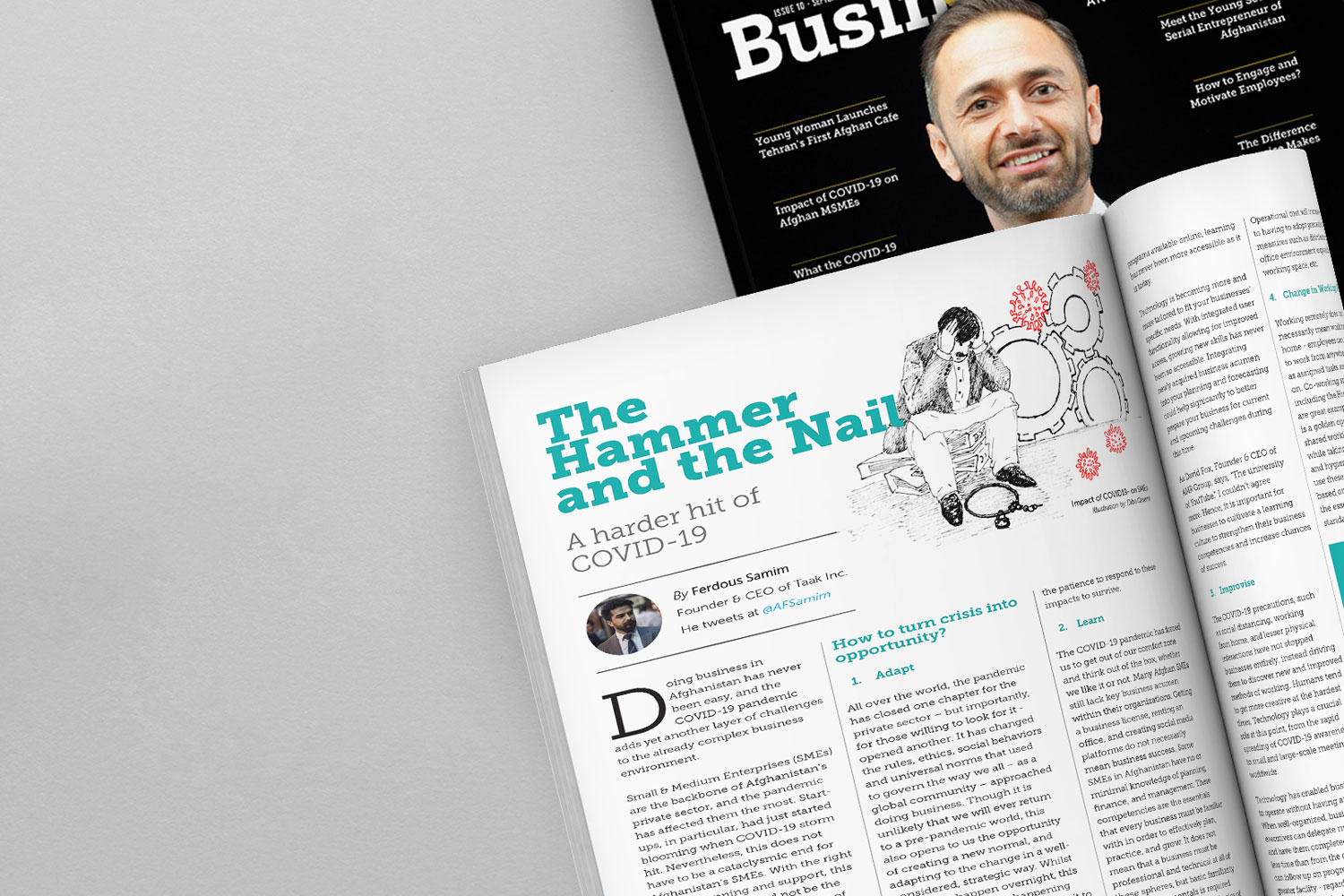BusinessDNA 10th Edition, Page 20
By Ferdous Samim, Founder & CEO of Taak Inc.

Doing business in Afghanistan has never been easy, and the COVID-19 pandemic adds yet another layer of challenges to the already complex business environment.
Small & Medium Enterprises (SMEs) are the backbone of Afghanistan’s private sector and the pandemic has affected them the most. Start-ups, in particular, had just started blooming when the COVID-19 storm hit. Nevertheless, this does not have to be a cataclysmic end for Afghanistan’s SMEs. With the right kind of planning and support, this latest challenge need not be the end of the road for large parts of our private sector. Afghan startups have already come a long and difficult way, and this pandemic is just another, though not the last, obstacle.
How to turn a crisis into an opportunity?
1. Adapt
All over the world, the pandemic has closed one chapter for the private sector – but importantly, for those willing to look for it – opened another. It has changed the rules, ethics, social behaviors, and universal norms that used to govern the way we all – as a global community – approached doing business. Though it is unlikely that we will ever return to a pre-pandemic world, this also opens to us the opportunity of creating a new normal and adapting to the change in a well-considered, strategic way. Whilst this won’t happen overnight, this is something that is happening regardless of whether we want it to or not – so, how do we adapt our business to these new conditions?
The first thing is to recognize the complexity of the challenge we face. Knowledge is power. Delving deep and restructuring our businesses and our models takes courage, but it could save your business. We must have the patience to respond to these impacts to survive.
2. Learn
The COVID-19 pandemic has forced us to get out of our comfort zone and think out of the box, whether we like it or not. Many Afghan SMEs still lack key business acumen within their organizations. Getting a business license, renting an office, and creating social media platforms do not necessarily mean business success. Some SMEs in Afghanistan have no or minimal knowledge of planning, finance, and management. These competencies are the essentials that every business must be familiar with in order to effectively plan, practice, and grow. It does not mean that a business must be professional and technical in all of these spheres, but the basic familiarity of the fundamentals is required. For example, learning the basics of taxation, writing a business plan, or using social media to market your products or services. In order for these businesses to stay afloat, they will need to use this period to learn in order to grow. Luckily, with quite literally millions of tailored learning programs available online, learning has never been more accessible as it is today.
Technology is becoming more and more tailored to fit your businesses’ specific needs. With integrated user functionality allowing for improved access, growing new skills has never been so accessible. Integrating newly acquired business acumen into your planning and forecasting could help significantly to better prepare your business for current and upcoming challenges during this time.
As David Fox, Founder & CEO of AMR Group, says, “The university of YouTube.” I couldn’t agree more. Hence, it is important for businesses to cultivate a learning culture to strengthen their business competencies and increase chances of success.
3. Improvise
The COVID-19 precautions, such as social distancing, working from home, and lesser physical interactions have not stopped businesses entirely, instead of driving them to discover new and improved methods of working. Humans tend to get more creative at the hardest times. Technology plays a crucial role at this point, from the rapid spreading of COVID-19 awareness, to small and large-scale meetings worldwide.
Technology has enabled businesses to operate without having an office. When well-organized, business executives can delegate more tasks and have them completed them in less time than from the office. They can follow up on progress with the greater facility – regardless of how far they are from the team or office. Employees can finish assignments on time and report back smoothly. These can substantially decrease fixed operational and administrative costs, as running an office is likely to be more expensive post-pandemic.
The operational cost will increase due to having to adopt precautionary measures such as disinfecting the office environment, expanding working space, etc.
4. Change in Working Norms
Working remotely does not necessarily mean working at home – employees can choose to work from anywhere as long as assigned tasks are delivered. Co-working spaces in Kabul including the Hub and Co-Worthy are great examples. The pandemic is a golden opportunity for such shared working spaces to expand while taking into account all safety and hygiene measures. Clients use these co-working spaces based on their need for having all the essential requirements of a standard office.
Learning has never been more accessible as it is today.
to be continued…
Read the full article at the BusinessDNA 10th Edition.






